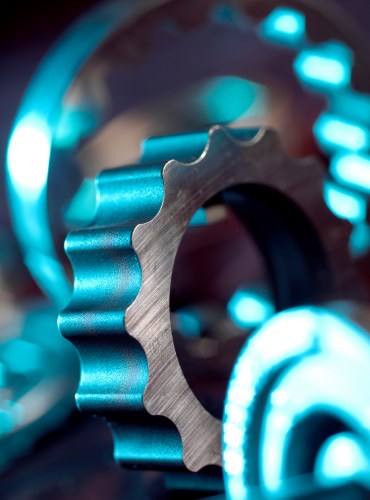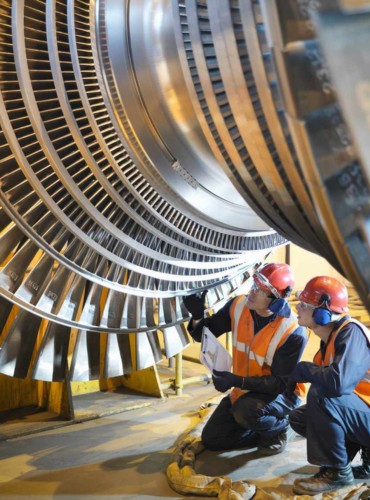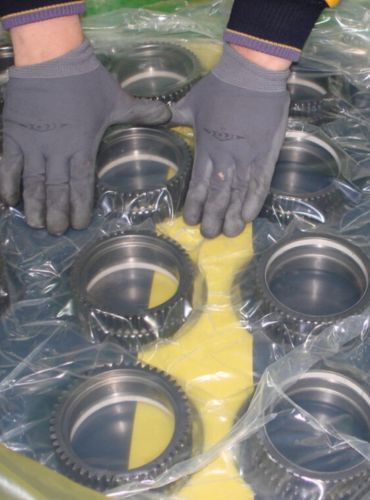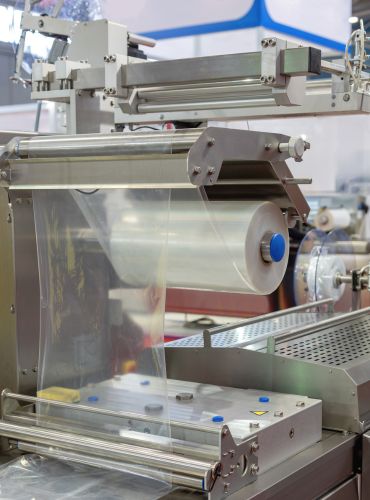our services

Corrosion Consulting
Welcome to our corrosion consulting service! We specialize in helping businesses and individuals prevent and manage corrosion-related issues. With years of experience and a team of highly skilled professionals, we are equipped to handle any corrosion-related challenge.
We offer a range of corrosion consulting services, including:
- Corrosion Risk Assessment: We will assess the risk of corrosion in your facility and develop a plan to mitigate those risks.
- Corrosion Monitoring: We will install and maintain a monitoring system to track the progression of corrosion.
- Material Selection: We will help you choose the right materials for your project, taking into account the corrosive environment.
- Coating Inspection: We will inspect and evaluate the performance of your coatings, ensuring that they are providing adequate protection.
- Failure Analysis: We will investigate the cause of corrosion-related failures and provide recommendations for preventing similar.

Preservation & Reactivation
We offer inspection services for our clients to check the quality of material and assets . We provide both third party inspection and vendor inspection . Also we offer quality audits at project sites as well as vendor locations. We also provide manpower resources for inspection services. Our inspection services includes the following procedures • Periodic inspection ( Regular , Testing , Turning and periodic ) • Continues preservation • Recording all actions in log / monthly report • Service and necessary repairs • Continues monitoring by our staff
Reactivation is the process of restoring a corroded metal surface back to its original condition. This process is essential because corrosion can weaken metal structures, compromising their integrity and increasing the risk of failure.
There are several methods of reactivating corroded metal, including Mechanical Cleaning, Chemical Cleaning, Electrochemical Cleaning, Re-Passivation etc

Mothballing
RUST TECH offering comprehensive on-site in depth study and review the client’s needs and procedures with experienced Corrosion specialists. A complete report with rust – prevention recommendations will be provided at the end of the corrosion issues once and for all. We are available globally to provide our products and services and solutions for our clients requirements in any part of the world.
Volatile Corrosion Inhibitors (VCI) Packaging is a packaging film which volatilizes the compounds to form protective layer around metal surfaces. VCI Packaging prevents salt, dirt & other corrosive particles to come in contact with the metal parts.

Preservation Procedures
Our corrosion preservation services involve implementing a range of measures to prevent corrosion and maintain the integrity of metal structures, which includes
- Inspection and Assessment: This process involves identifying areas of potential corrosion and evaluating the overall condition of the metal.
- Surface Preparation: This process involves cleaning the metal surface and removing any corrosion, debris, or contaminants.
- Coatings: Applying a protective coating to the metal surface can help prevent corrosion by creating a barrier between the metal and its environment.
- Cathodic Protection: This method helps to prevent corrosion by limiting the availability of electrons that contribute to the corrosion process.
- Corrosion Inhibitors: Corrosion inhibitors are chemicals that can be added to a system to slow down or prevent corrosion.
- Maintenance and Monitoring: Regular inspections and maintenance activities can help identify and address corrosion-related issues before they become a major problem.

VCI Technology
Our VCI technology is effective for protecting a range of metal assets, including machinery, equipment, and tools. It is a cost-effective and environmentally friendly solution for corrosion management.
Our VCI technology consultation services can help you implement this technology effectively. Here’s how we can help:
- Needs Assessment: Our team of experts will assess your corrosion management needs and recommend the most appropriate VCI technology solutions for your specific requirements.
- Product Selection: We will help you select the right VCI products for your metal assets. We work with leading VCI product manufacturers and can recommend products that are proven to be effective.
- Application and Installation: Our team can provide guidance and support for the application and installation of VCI products. We will ensure that the products are applied correctly and in the right quantity.
- Monitoring and Maintenance: We will provide ongoing monitoring and maintenance services to ensure that the VCI products continue to provide effective corrosion protection.

Training & Execution
Training and execution are critical components of an effective corrosion management plan. Here’s what you need to know about our training and execution for corrosion prevention:
Our training programs cover the following topics:
- Corrosion Basics: The basics of corrosion, including the different types of corrosion and their effects on metal structures.
- Corrosion Prevention Measures: The various methods used to prevent corrosion, such as coatings, cathodic protection, and corrosion inhibitors.
- Inspection and Maintenance: The importance of regular inspection and maintenance activities to identify and address corrosion-related issues before they become a major problem.
- VCI Technology: The use of volatile corrosion inhibitors as a method of corrosion protection.
- Safety Procedures: The safety procedures that should be followed when working with corrosion prevention measures.
Execution
Proper execution is also critical for effective corrosion prevention.Ensure that the corrosion management plan is implemented as planned, and that the necessary resources are allocated for its execution. Conduct regular inspections to identify and address any corrosion-related issues. Implement a maintenance schedule to keep the metal structures in good condition and ensure that corrosion prevention measures are effective.

Corrosion Monitoring
Our corrosion monitoring services involve the regular inspection and analysis of metal structures to detect and prevent corrosion-related issues.
Our corrosion monitoring, includs
- Visual Inspection: Visual inspection involves examining the metal surface for signs of corrosion, such as discoloration, pitting, or cracking.
- Non-Destructive Testing (NDT): NDT techniques, such as ultrasonic testing, radiography, and magnetic particle testing, can be used to identify corrosion-related issues without damaging the metal structure.
- Electrochemical Monitoring: Electrochemical monitoring involves measuring the electrical potential and current flow of the metal to track corrosion-related changes.
- Corrosion Rate Monitoring: Corrosion rate monitoring involves tracking the rate of corrosion on the metal surface over time.

Equipment Preservation & Packing
Our equipment preservation involves implementing a range of measures to protect metal assets from corrosion during storage or downtime. Some of our effective equipment preservation includes Clean and Dry, Coatings, VCI Technology, Humidity Control, Inspection and Maintenance
Our equipment packing involves ensuring that metal assets are properly packed and protected during transport. This includes
- Clean and Dry: Ensure that the metal surface is clean and dry before packing. Moisture and contaminants can accelerate corrosion during transport.
- Cushioning: Use appropriate cushioning materials to protect the metal asset during transport. Shock and vibration can cause damage that can lead to corrosion.
- Sealing: Ensure that the metal asset is properly sealed to prevent moisture and contaminants from entering.
- VCI Technology: Use VCIs during packing to provide additional corrosion protection during transport.
- Handling and Loading: Ensure that the metal asset is handled and loaded correctly to prevent damage that can lead to corrosion.

Documentation
Documentation is a critical component of effective corrosion management. Keeping detailed records of corrosion-related activities, including inspections, maintenance, and repairs, can provide valuable information for future planning and decision-making. Here’s what you need to know about documentation for corrosion management:
- Record Keeping: Maintain detailed records of all corrosion-related activities, including inspections, maintenance, repairs, and corrosion prevention measures implemented.
- Data Collection: Collect data on corrosion-related issues, including the type and location of corrosion, the severity of the corrosion, and the measures taken to address the issue.
- Corrosion Maps: Create corrosion maps that show the location and severity of corrosion on metal structures.
- Maintenance Schedule: Develop a maintenance schedule that includes the frequency of inspections and maintenance activities.
- Reporting: Generate reports that provide an overview of corrosion-related issues, including the location and severity of corrosion, and any measures taken to address the issue.
- Decision Making: Use the information collected to inform future planning and decision-making, such as the implementation of new corrosion prevention measures
